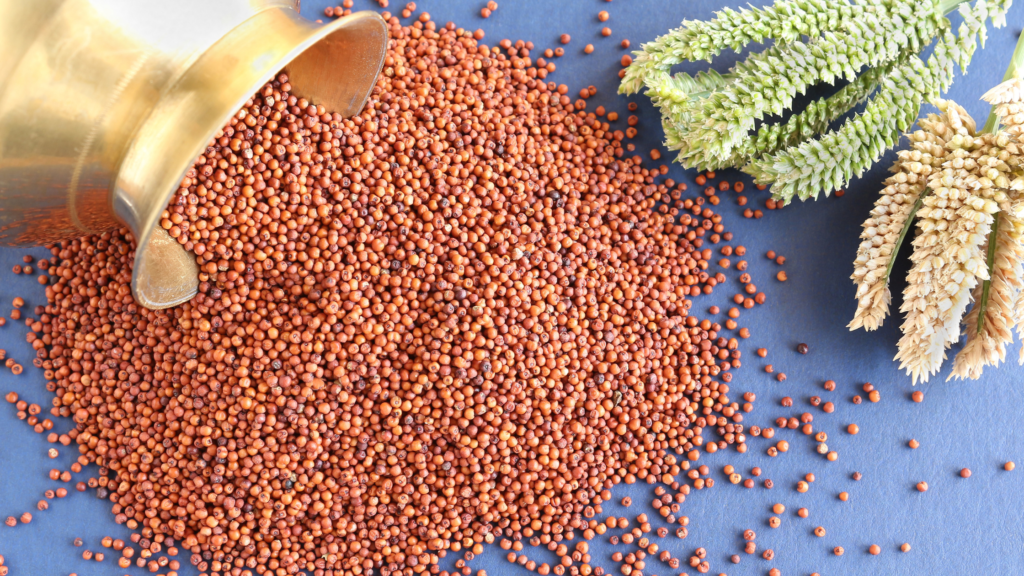
Ragi, also known as finger millet, is an ancient grain native to India. It’s a staple food in many regions and has gained popularity worldwide for its impressive nutritional profile. But recently, there’s been growing interest in potential Anti-Cancer Benefits of Ragi. Let’s delve deeper into the current research and explore what we know so far.
The Power of Phytochemicals:
Ragi boasts a wealth of phytochemicals. These are natural plant compounds known to offer various health benefits. Some of the key phytochemicals found in ragi include:
Phenolic acids: These antioxidants help combat free radical damage in the body, which is linked to the development of chronic diseases like cancer.
Flavonoids: This group of antioxidants offers anti-inflammatory properties and may play a role in regulating cell growth.
Lignans: These plant compounds may help with hormonal balance and have been shown to potentially reduce the risk of certain cancers, particularly those associated with hormones like estrogen.
While these phytochemicals demonstrate promising anti-cancer effects in laboratory studies, it’s important to understand that translating these findings to humans requires further research.
Early Research Shows Promise:
Studies have explored the potential anti-cancer properties of ragi extracts on specific cancer cell lines. One such study investigated the effect of ragi seed extract on human chronic myeloid leukemia cells. The results showed a positive impact, suggesting ragi might have potential in targeting specific types of cancer cells.
However, it’s crucial to remember that these studies are conducted in controlled lab environments. They don’t necessarily translate to how ragi functions within the human body, where complex interactions occur. Additionally, most research focuses on specific components of ragi rather than the whole grain itself.
Ragi’s Overall Health Benefits:
While the evidence for ragi’s direct anti-cancer properties is still evolving, this versatile grain offers numerous benefits that contribute to overall health and well-being. These benefits may indirectly contribute to a lower risk of chronic diseases like cancer.
High in Fiber: Ragi is a rich source of dietary fiber, which promotes gut health and digestion. Adequate fiber intake can help maintain healthy blood sugar levels and regulate bowel movements, potentially reducing the risk of colon cancer.
Rich in Antioxidants: As mentioned earlier, the presence of antioxidants helps neutralize free radicals that damage cells and contribute to chronic diseases.
Good Source of Protein: Ragi offers a complete protein source for vegetarians and vegans. Protein plays a vital role in cell repair and growth, essential for maintaining overall health.
Gluten-Free: Ragi is naturally gluten-free, making it a safe and healthy option for individuals with celiac disease or gluten sensitivity.
The Future of Ragi Research:
The research on ragi’s anti-cancer potential is ongoing. Scientists are looking deeper into how individual components of the grain interact with the human body and how ragi consumption might influence cancer risk factors.
A Well-Balanced Approach:
While ragi shows promise in the fight against cancer, it’s important to maintain realistic expectations. A healthy diet rich in a variety of fruits, vegetables, and whole grains is crucial for preventing chronic diseases like cancer. Ragi can be a valuable addition to this balanced diet, but it shouldn’t be seen as a sole preventative measure.
Here are some key takeaways:
Ragi offers a wealth of nutrients and may have potential anti-cancer properties.
Further research is needed to definitively understand these effects in humans.
A well-balanced diet incorporating ragi can contribute to overall health and potentially reduce the risk of chronic diseases, including cancer.
Intrigued by the wonders of millets? We've got you covered! Check out our next blog post, "Jowar: The Millet Powerhouse for Weight Management," to discover how this wonder grain can support your weight loss goals!
